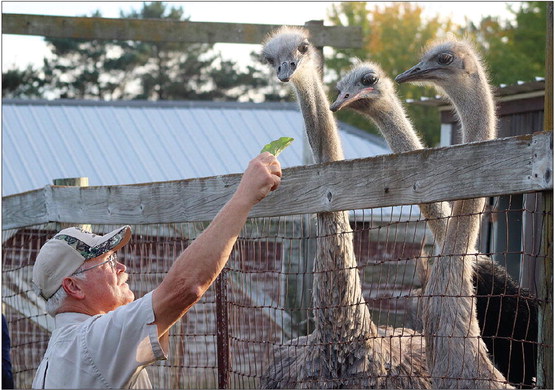ON GOLDEN F


EATHER
Unofficial ‘Clark County Zoo’ home to hundreds of critters
By Dean Lesar Cliff Johnson saw a news story one ...


EATHER
Unofficial ‘Clark County Zoo’ home to hundreds of critters
By Dean Lesar Cliff Johnson saw a news story one ...